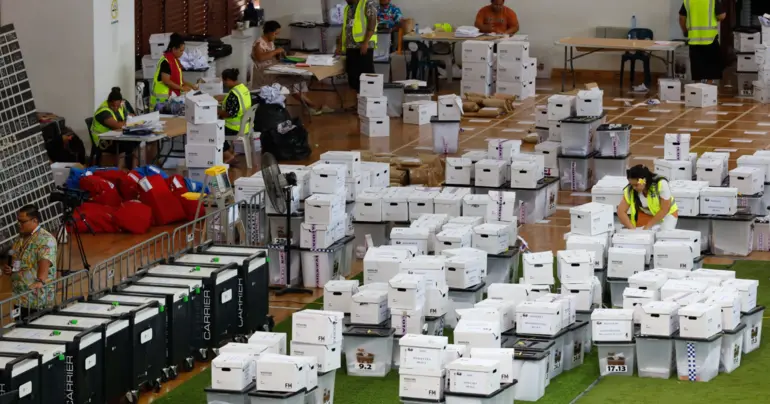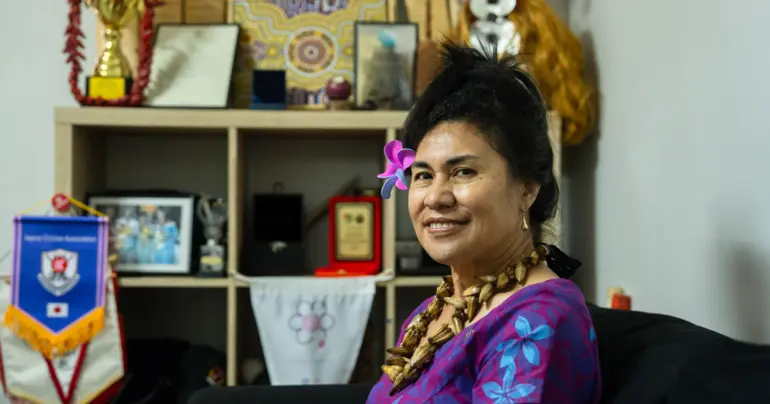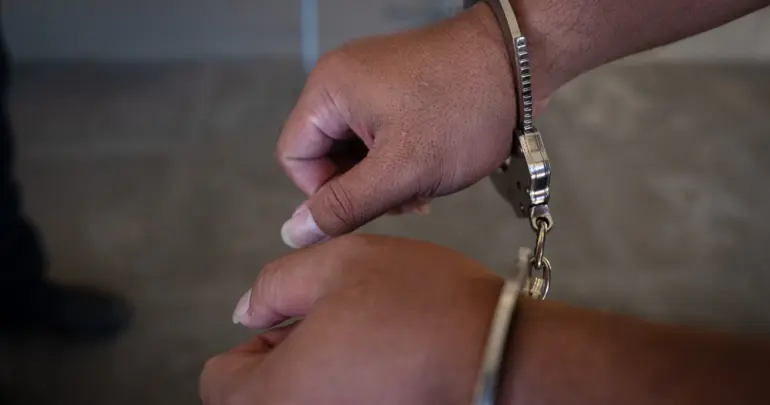Address reforms to revive real estate, economy: agent
 By Sapeer Mayron
•
28 January 2020, 8:55PM
By Sapeer Mayron
•
28 January 2020, 8:55PM
An outspoken supporter of Samoa’s new system for street addresses said he is expecting the reforms will bring immense economic benefits not just to the real estate industry but broader commerce.
Failo Crichton, the owner of Real Estate Samoa, said the reforms will allow homeowners to reach the global real estate market but he predicts the benefits will reach other sectors of the economy too.
Mr. Crichton said that without street addresses, Samoan home-owners are unable to list properties or land with global real estate firms, limiting their access to potential buyers.
Anti-money laundering regulations require listings to have full addresseses, which a majority of freehold land owners in Samoa do not have.
Now that Samoa is moving to a system that will provide names for every street and numbers for every house, these regulations - and new buyers - can be met.
Over the holiday period, Mr. Crichton says he visited his former agency, Ray White in New Zealand, to discuss with his colleagues about the potential of these new developments.
“Once [the street address system] is officially launched we will discuss further how the Ray White branding can help. It will be really nice to have the Ray White backing in Samoa because it brings integrity and protection into the business," he said.
Currently Samoa has very few real estate regulations and legislation, and agents are not licensed by any local body.
With the exception of the Land Titles Registration Act 2008, buyers and sellers of property have limited guidelines and legal protections.
One major gap, Mr. Crichton said, is the absence of protection for premium real estate such as waterfront properties. If such properties are freehold and able to be sold, the agent argues national law should expressly prevent them from being sold to foreign buyers.
“A foreigner could marry a local and buy waterfront property, or commercial property, whereas in New Zealand most of the waterfront and some commercial properties are protected by real estate laws," he said.
“We don’t have any real estate laws in Samoa and maybe having Ray White coming in might help us move to that next stage where we set up a body. That will bring integrity to the industry as well.”
Licensing and training agents would greatly improve an industry that Mr. Crichton says has been previously marred by “cowboys” or well-intentioned but ill-advised agents depriving customers hundreds of thousands of tala in potential sales.
Until September 2018, Mr. Crichton was a Ray White agent in Samoa. But he said a lack of addresses made verifying customers too difficult requiring him to set out on his own.
Previously Trust, Integrity & Compliance Limited (TICC.nz) conducted due diligence on customers for Mr. Crichton, and they told him that the name of a village alone was not enough to satisfy international Anti-Money Laundering and Counter-Terrorism Financing regulations.
At least 30 of Mr Crichton’s clients could not list their properties on the Ray White real estate website. For at least five of those clients, a smaller market resulted in substantial losses on their sales.
“We had a couple of hotels on there, and we had a lot of enquiries coming through from overseas buyers. And now there are four or five hotels that want me to list, but now they won’t have the exposure," he said.
Mr. Crichton’s concerns have invited some backlash from those who argue that facilitating more land sales and introducing foreign buyers to Samoa's market should not be a goal.
The agent retorts that his focus is the opposite: to help overseas Samoans purchase freehold land in their own country.
“Our freehold land is around 10 per cent [of our volume], or less,” Mr. Crichton said, which is comparatively easy to buy.
“There is no protection right now apart from the fact that you cannot buy land unless you are a citizen, but what we are encouraging is for Samoans to come back and buy land," he said.
“We are not trying to give our land to foreigners, we want more Samoans to own land, because many of them don’t. Otherwise foreigners will buy our freehold land and keep it.”
Mr. Crichton said one thing that inspired him to leave New Zealand and start his own business in Samoa was watching Kiwis struggle to buy land as speculation drove property prices up.
“That should wake us up,” he said..
Beyond his real estate interests, Mr. Crichton is excited about the possibilities for vendors following from the introduction of the street naming projects.
“To have a store with eBay or Amazon you need an address, so once we have that, it opens all of Samoa’s vendors to becoming global stores online," he said.
“You can live in kua (rural Samoa) and make Samoan handicrafts and sell it from there, you can have a global market and live in kua and make a good living.”
 By Sapeer Mayron
•
28 January 2020, 8:55PM
By Sapeer Mayron
•
28 January 2020, 8:55PM











